Английский язык для специальных и академических целей: Международные отношения и зарубежное регионоведение. Часть 1 - [70]
But as plenty of experts have pointed out, there is no piece of paper that officially designates Brits as “citizens.” And if a magazine-length article can be written under the headline “Are we subjects or citizens?” as the BBC did in 2005, whatever scraps of citizenship clinging to Britons can't be all that substantial.
The financial side of the British monarchy is no less quirky. Governing for payment is standard, but the queen reigns, which appears mostly to mean visiting things. Strange as this looks from a practical standpoint, it's even stranger in theory. In 2012, why would the people of a Western state pay someone to subjugate them? That Britain is Western matters here not so much because of values but because of history. The British state was arguably the first in the region to be organized along the principles of an explicit social contract; it's the heir to the English Magna Carta in 1215 as well as the Glorious Revolution, where, for the first time, monarchs — King William and Queen Mary — were brought in to accept a crown on the subjects' own terms. Yet, in a twist that continues to fascinate historians, William and Mary paved the way for remarkably conservative stability in the ensuing centuries. France, as the trope goes, had a political revolution, Britain had an industrial one. And here the two countries are today, France heading into the final stretch of a presidential election, while a not insignificant portion of the British economy gets poured into preparations for a June-weekend Diamond Jubilee of a figurehead queen, who Britons never explicitly agreed to support.
Though the March 2011 financial report on royal finances proudly announced a 19% decrease in the Queen's official expenditure over the course of five years, is this really much solace? Her family will still spend £32.1 million, quite a lot of money. Remarkably, UK education secretary Michael Gove reportedly also wanted the public to donate a £60 million royal yacht to Her Majesty for the 2012 celebrations, although the details of that proposal are disputed, and private donations were mentioned as well.
Downing Street nixed the public funding idea, fortunately. Prime Minister David Cameron did declare early Monday, though, that “Today is a day to pay tribute to the magnificent service of Her Majesty the Queen.” Her “experience, dignity, and quiet authority,” he also mentioned are indisputable, but “pay tribute” seems a bit too atavistically close to home for comfort, and Brits don't have as much tribute to give up as they used to. And “magnificent service”? No one doubts the queen keeps a pretty punishing schedule of standing in formal ceremonies and visiting schools for a lady her age — but there are a few palaces and a lifetime source of income in the deal.
The royal wedding is over. Kate's and Pippa's dresses were fantastic, and the hats were fun. No argument there. As a privately funded theme park, the royals have real potential. The monarchy, so the crown defenders' argument goes, does indeed bring in cash for the country through tourism and from the Crown Estate. But the current set-up is bizarre, and the frenzied yearning for a U.S. equivalent among so many of my American countrymen and women last spring was puzzling. In the cold, clear light of this less glamorous royal event, the monarchy looks like exactly what it is: a major anachronism. Nothing more.
The Reader
The repeated freezing of the Civil List merely adds to the monarchy's value, says Gerald Warner.
By Gerald Warner, the Telegraph
Among the mind-boggling macroeconomic statistics rattled off by George Osborne in his Budget statement, one figure stood out in its extreme modesty: the £7.9 million Civil List payment to the Queen, frozen for the 21st year in succession. Allocated by John Major, as chancellor, in 1990, it has since lost 76 per cent of its value. The Queen must be alone among public-sector workers in accepting such a real terms reduction in income over so long a period. She is also unique in continuing to work aged 84.
The official Treasury announcement stated: “Royal Household spending on support of The Queen in Her duties as Monarch in 2011 will fall from £15.1 million to £14.9 million. The £7 million difference will be financed from the Civil List Reserve.” Because the Queen prudently set aside savings in the earlier years, when the £7.9 million payment was worth more, now that the proverbial rainy day has arrived she has reserves to draw upon. Gordon Brown, at his weekly audiences, might profitably have taken advice from her majesty on the prudent management of public funds.
The Civil List was established in 1760, when George III surrendered the income from the Crown Estate to the government in exchange for a fixed annual payment from the Treasury. The taxpayer gained an exceptional bargain from that arrangement: last year, total government spending on all functions of the monarchy amounted to £7.9 million from the Civil List, £22.6 million in grants-in-aid for communications, travel and property from the Department for Culture, Media and Sport, and £4.6 million from other departments. That total of £35.1 million is dwarfed by the £226.5 million profit passed to the Treasury by the Crown Estate.
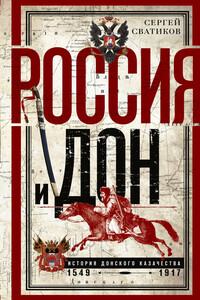
Предлагаем вашему вниманию адаптированную на современный язык уникальную монографию российского историка Сергея Григорьевича Сватикова. Книга посвящена донскому казачеству и является интересным исследованием гражданской и социально-политической истории Дона. В работе было использовано издание 1924 года, выпущенное Донской Исторической комиссией. Сватиков изучил колоссальное количество монографий, общих трудов, статей и различных материалов, которые до него в отношении Дона не были проработаны. История казачества представляет громадный интерес как ценный опыт разрешения самим народом вековых задач построения жизни на началах свободы и равенства.
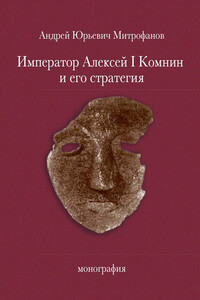
Монография доктора исторических наук Андрея Юрьевича Митрофанова рассматривает военно-политическую обстановку, сложившуюся вокруг византийской империи накануне захвата власти Алексеем Комнином в 1081 году, и исследует основные военные кампании этого императора, тактику и вооружение его армии. выводы относительно характера военно-политической стратегии Алексея Комнина автор делает, опираясь на известный памятник византийской исторической литературы – «Алексиаду» Анны Комниной, а также «Анналы» Иоанна Зонары, «Стратегикон» Катакалона Кекавмена, латинские и сельджукские исторические сочинения. В работе приводятся новые доказательства монгольского происхождения династии великих Сельджукидов и новые аргументы в пользу радикального изменения тактики варяжской гвардии в эпоху Алексея Комнина, рассматриваются процессы вестернизации византийской армии накануне Первого Крестового похода.
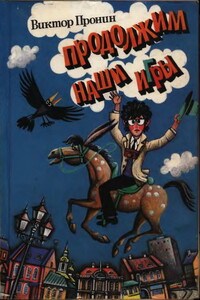
Виктор Пронин пишет о героях, которые решают острые нравственные проблемы. В конфликтных ситуациях им приходится делать выбор между добром и злом, отстаивать свои убеждения или изменять им — тогда человек неизбежно теряет многое.
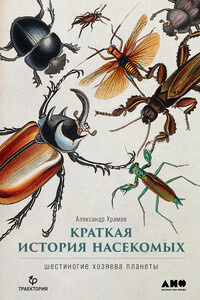
«Любая история, в том числе история развития жизни на Земле, – это замысловатое переплетение причин и следствий. Убери что-то одно, и все остальное изменится до неузнаваемости» – с этих слов и знаменитого примера с бабочкой из рассказа Рэя Брэдбери палеоэнтомолог Александр Храмов начинает свой удивительный рассказ о шестиногих хозяевах планеты. Мы отмахиваемся от мух и комаров, сражаемся с тараканами, обходим стороной муравейники, что уж говорить о вшах! Только не будь вшей, человек остался бы волосатым, как шимпанзе.
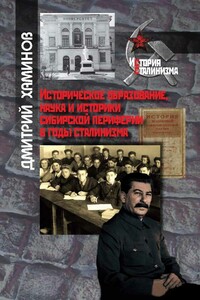
Настоящая монография посвящена изучению системы исторического образования и исторической науки в рамках сибирского научно-образовательного комплекса второй половины 1920-х – первой половины 1950-х гг. Период сталинизма в истории нашей страны характеризуется определенной дихотомией. С одной стороны, это время диктатуры коммунистической партии во всех сферах жизни советского общества, политических репрессий и идеологических кампаний. С другой стороны, именно в эти годы были заложены базовые институциональные основы развития исторического образования, исторической науки, принципов взаимоотношения исторического сообщества с государством, которые определили это развитие на десятилетия вперед, в том числе сохранившись во многих чертах и до сегодняшнего времени.
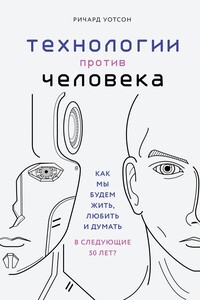
Эксперты пророчат, что следующие 50 лет будут определяться взаимоотношениями людей и технологий. Грядущие изобретения, несомненно, изменят нашу жизнь, вопрос состоит в том, до какой степени? Чего мы ждем от новых технологий и что хотим получить с их помощью? Как они изменят сферу медиа, экономику, здравоохранение, образование и нашу повседневную жизнь в целом? Ричард Уотсон призывает задуматься о современном обществе и представить, какой мир мы хотим создать в будущем. Он доступно и интересно исследует возможное влияние технологий на все сферы нашей жизни.